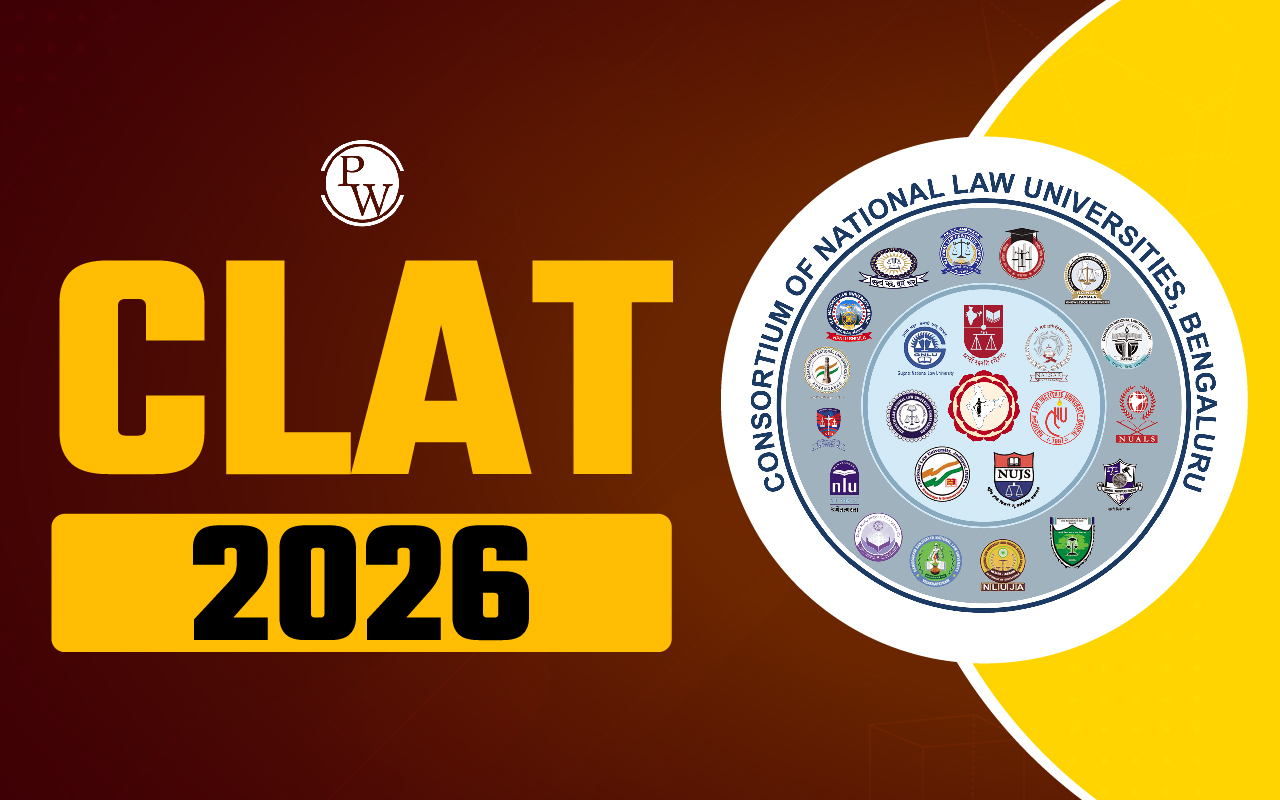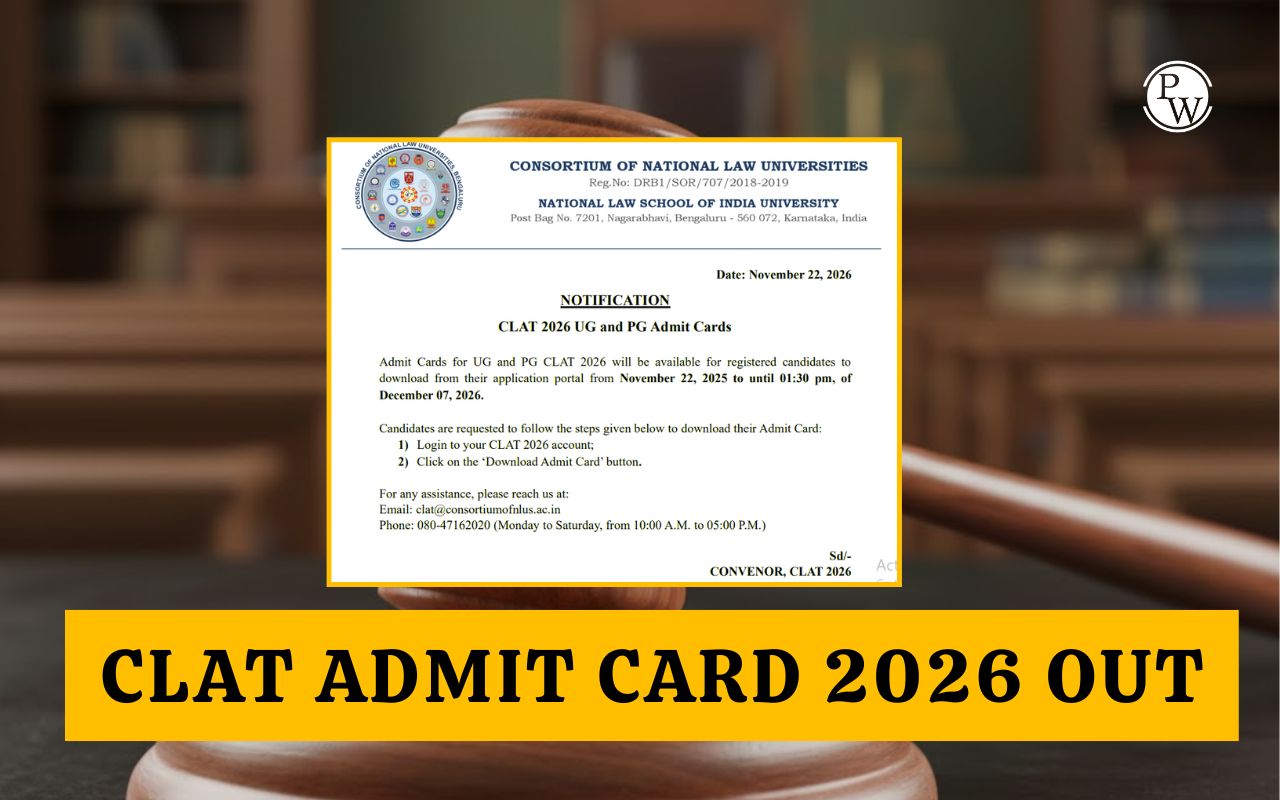

How to Become a Corporate Lawyer: The corporate sector has seen major developments in the past few years and has been booming extensively, contributing about 53% of the total GDP. Since the corporate sector has become the backbone of the Indian Economy, the demand for corporate lawyers has tremendously risen. To become a corporate lawyer, you need to complete a law degree, pass the bar exam, and gain experience in business law through internships or entry-level positions.
Corporate lawyers advise companies on a range of legal issues, including mergers, acquisitions, contracts, and intellectual property. Their expertise ensures that businesses comply with laws and regulations while protecting their interests.Checkout Law Books from PW Store
Types of Corporate Lawyers
Corporate law is a broad field, and within it, there are several specializations. Here are some common types of corporate lawyers.- Mergers and Acquisitions (M&A) Lawyers: These lawyers focus on facilitating mergers, acquisitions, and corporate restructurings, advising clients on structuring deals, due diligence, and negotiations.
- Securities Lawyers : Securities lawyers deal with laws related to stocks, bonds, and other financial instruments. They help companies comply with securities regulations and assist with public offerings, shareholder agreements, and insider trading issues.
- Intellectual Property (IP) Lawyers : These lawyers specialize in protecting a company’s intangible assets, such as patents, trademarks, copyrights, and trade secrets, and help with licensing and litigation matters.
- Corporate Governance Lawyers : Corporate governance lawyers advise businesses on their internal management structure, ensuring compliance with laws related to board governance, shareholder rights, and executive compensation.
- Employment and Labor Lawyers : These lawyers focus on employment law matters, advising companies on issues like employment contracts, discrimination, workplace policies, and labor disputes.
How to Become a Corporate Lawyer? Step-by-Step Guide
Becoming a corporate lawyer requires a structured approach and specific educational and professional steps. Here's a comprehensive guide to becoming a corporate lawyer .- Complete Class 12th Education
- Choose a Law Entrance Exam Pathway
- Join a Law School
- Intern at Law Firms or Corporate Legal Departments
- Complete the Bar Exam
- Specialize in Corporate Law
- Gain Experience and Build Expertise
- Pursue Advanced Qualifications
Read More: Salary of A Corporate Lawyer, Who is a Corporate Lawyer?, Perks & Allowances
Skills Required to Become a Corporate Lawyer
To become a corporate lawyer, you need strong analytical and problem-solving skills to navigate complex legal issues. Excellent communication skills are crucial for drafting clear contracts, negotiating deals, and advising clients effectively. A deep understanding of business and finance is also important to grasp the intricacies of corporate transactions. Some of the noteworthy skills that are a must for a corporate lawyer are listed below.Communication Skills
Negotiation abilities and effective communication are crucial. Corporate lawyers must:- Communicate orally with distinction, authority, and confidence
- Maintain clear and error-free written communication
- Explain complicated legal topics simply
- Use negotiation skills for conflict resolution and efficient representation
Analytical and Research Capabilities
Strong research and analytical abilities are fundamental, including:- Understanding how law relates to client issues
- Conducting background research
- Producing legal documents
- Analyzing complex legal issues
- Critical thinking to find novel solutions
- Quick decision-making under pressure
Attention to Detail
Details are paramount in corporate law. A successful corporate lawyer must:- Have a sharp eye for scanning important information
- Maintain high accuracy
- Meticulously review extensive documentation
Business Acumen
Corporate lawyers must:- Thoroughly understand business ideas and procedures
- Make decisions beyond legal duties
-
Develop competitive edge through knowledge of:
- Finance
- Marketing
- Business strategy
Teamwork and Professional Skills
Corporate lawyers need robust teamwork skills to:- Communicate across legal hierarchy levels
- Find common ground
- Resolve disputes professionally
- Collaborate with legal teams from other corporations
Organizational and Leadership Abilities
Essential professional skills include:- Managing heavy caseloads
- Prioritizing competing demands
- Demonstrating leadership
- Inspiring and motivating colleagues
- Handling stress and setbacks with resilience
Roles and Responsibilities of a Corporate Lawyer
Corporate lawyers play a crucial role in advising businesses on legal matters and ensuring compliance with laws and regulations. Their responsibilities include drafting and reviewing contracts, handling mergers and acquisitions, negotiating business deals, and providing guidance on intellectual property matters.- Drafting and Reviewing Contracts : Corporate lawyers create and review contracts to ensure they are legally sound, protecting the company’s interests and minimizing potential liabilities.
- Mergers and Acquisitions : They assist in structuring and negotiating mergers, acquisitions, and other corporate transactions, ensuring legal compliance and protecting the company’s assets.
- Corporate Governance : Corporate lawyers advise businesses on best practices for governance, ensuring compliance with laws and regulations related to board management and shareholder relations.
- Intellectual Property Protection : They help businesses protect their intellectual property by advising on trademarks, patents, copyrights, and licensing agreements.
- Dispute Resolution : Corporate lawyers manage and resolve disputes, often through negotiation, mediation, or arbitration, to avoid costly litigation and maintain business relationships.
- Compliance and Regulatory Guidance : They ensure that companies comply with industry-specific regulations, including securities laws, environmental regulations, and data protection laws.
- Employment Law Advice : Corporate lawyers provide legal advice on employment contracts, employee rights, workplace policies, and dispute resolution between employers and employees.
- Corporate Finance and Securities : They assist in structuring corporate financing, including issuing securities, handling stock market listings, and managing public offerings or private placements.
- Tax Law Compliance : Corporate lawyers work with tax professionals to ensure businesses comply with tax laws, structure deals for tax efficiency, and minimize tax liabilities.
- Risk Management : They identify legal risks in business strategies and operations, providing advice to minimize those risks and protect the company from potential legal issues.
Exams to Appear for Becoming a Corporate Lawyer
To become a corporate lawyer, candidates need to pass entrance exams for law school and the bar exam after graduation. Common law school entrance exams in India include the CLAT (Common Law Admission Test) and LSAT (Law School Admission Test). After completing your law degree, you'll need to pass the bar exam in your jurisdiction to become a licensed attorney.- Common Law Admission Test (CLAT)
- Maharashtra State Common Entrance Test for Law
- Andhra Pradesh State Law Common Entrance Test
- Telangana Law Common Entrance Test
- DU LL.B Entrance Exam
- Law School Admission Test India
- Allahabad University LAT Exam
- BHU Undergraduate Entrance Test
- Punjab University LL.B Entrance Test.
Scope and Future Opportunities for a Corporate Lawyer
The scope for corporate lawyers is vast and continues to grow as businesses become more complex and globalized. Corporate lawyers can work in a variety of settings, including law firms, multinational corporations, financial institutions, or government agencies. Future opportunities include roles in emerging industries such as technology, cybersecurity, and renewable energy, where legal expertise will be critical to navigating new challenges. Additionally, with the rise of international trade and cross-border transactions, corporate lawyers with global experience and multilingual skills will be in high demand. As businesses increasingly focus on compliance, sustainability, and risk management, corporate law professionals will also play an essential role in guiding companies through regulatory and legal complexities.How to Become a Corporate Lawyer? FAQs
What qualifications are needed to become a corporate lawyer?
Do I need a business background to become a corporate lawyer?
What skills are needed to be a successful corporate lawyer?
How much do corporate lawyers earn?
How long does it take to become a corporate lawyer?












